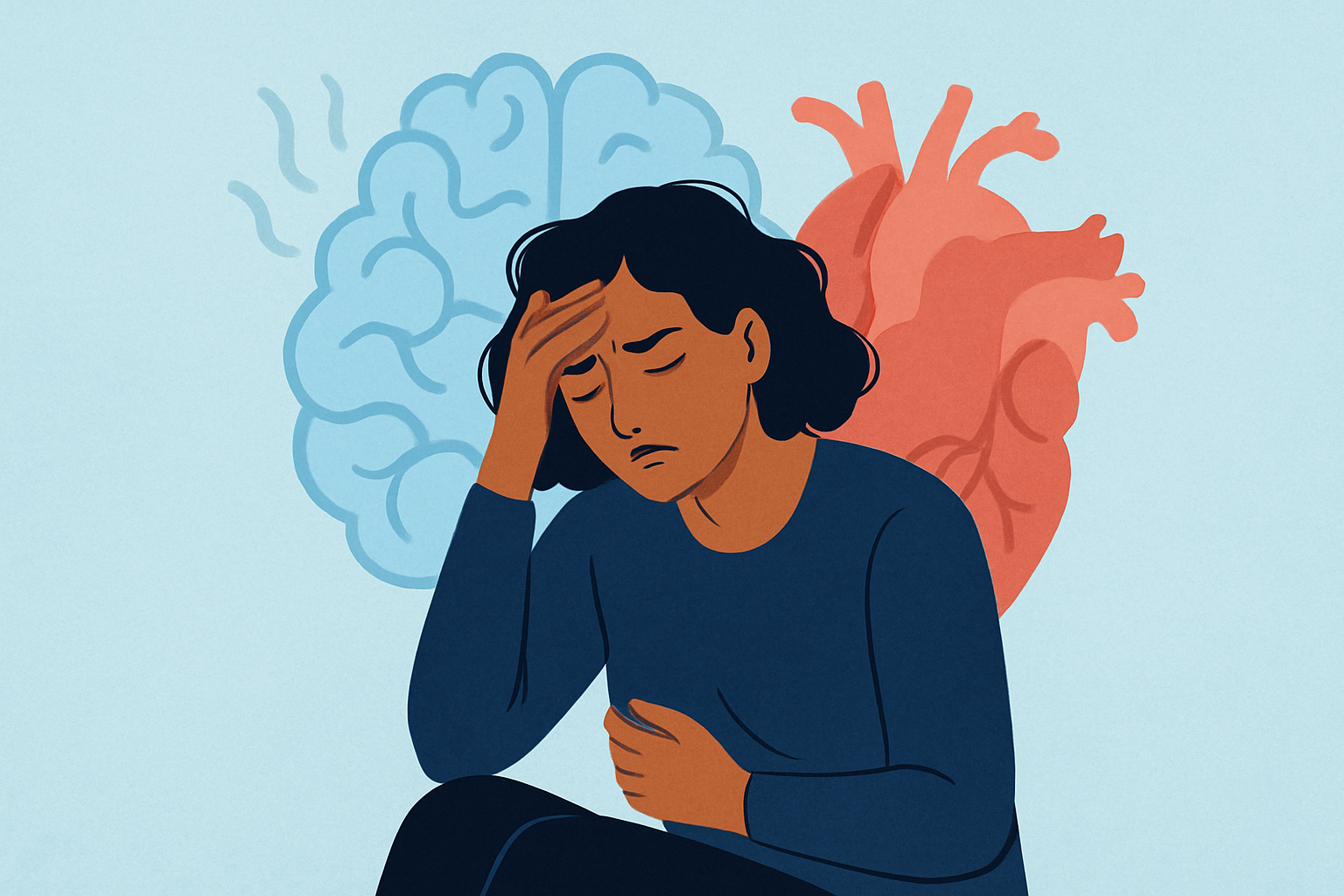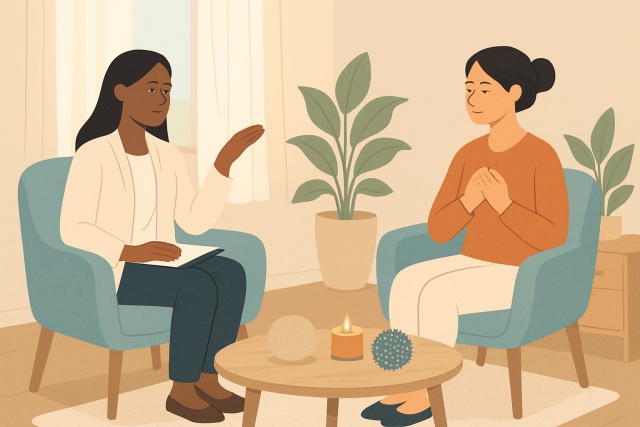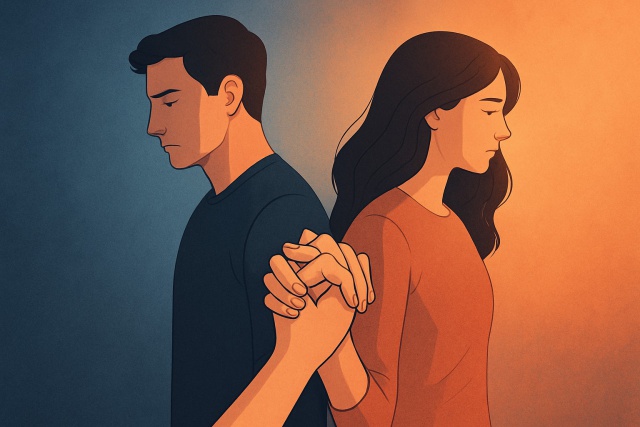
Signs Your Body Is Releasing Trauma During Healing
Understanding the signs your body is releasing trauma helps you recognize healing in progress and en...
Complex PTSD or C-PTSD is a mental health condition that develops from long-lasting or repeated trauma often unfolding over months or years rather than a quick one-off event. This sets it apart from usual PTSD which typically follows a single traumatic incident. When trauma sticks around for the long haul it can leave a deep mark on a person’s emotions and how they view themselves, sometimes in ways that aren’t immediately obvious. Getting familiar with the common symptoms of complex PTSD can make all the difference in spotting it early and lending the right kind of support. The symptoms here are often more widespread and tangled than what you would see with typical PTSD.
This article breaks down the 7 key symptoms of complex PTSD in plain, straightforward language that won’t make your head spin. It’s crafted to help you spot the signs in yourself or a loved one—no mental health degree needed.
Complex PTSD often creeps in after enduring trauma that sticks around for the long haul such as prolonged abuse or captivity rather than popping up from a single traumatic incident.
Complex PTSD often sneaks up on people after they have endured ongoing emotional or physical abuse or sexual abuse—sometimes during childhood and sometimes later in adulthood. It can also emerge from harrowing situations like imprisonment or human trafficking where a person is trapped with little hope of escape.
PTSD and complex PTSD share many symptoms but complex PTSD brings extra headaches like struggling to keep emotions in check and wrestling with persistent negative beliefs about oneself. It also causes real difficulties in relationships.
Understanding the seven core symptoms of complex PTSD can really help when it comes to spotting the condition in yourself or others. These symptoms lay bare the unique emotional and physical challenges that people with C-PTSD often wrestle with.
One of the trickiest symptoms of complex PTSD is definitely the struggle to manage emotions. People often ride a rollercoaster of intense mood swings and sudden bursts of anger or irritability as well as moments of numbness or emptiness. It doesn’t take much—a small trigger like a critical remark can set off overwhelming rage or sink someone into deep sadness. Sometimes individuals might feel emotionally shut down as if their feelings got flipped off like a switch to protect them from pain. Picking up on these emotional cues and learning to express them safely can be a real game changer in coping.
People wrestling with complex PTSD often carry a harsh inner critic and see themselves as worthless or fundamentally flawed. That heavy load of self-blame usually stems from the trauma they have been through.
Building relationships and earning trust can sometimes feel like trying to catch smoke with your bare hands. It’s rarely straightforward and often sprinkled with little hurdles that, if overlooked, can turn into mountains. From navigating personal differences to overcoming past baggage, these challenges test patience, empathy, and a whole lot of heart.
Complex PTSD often throws a wrench into the whole process of connecting with others. People dealing with it usually find trust to be a major uphill battle which can cause them to pull back or sometimes cling to unhealthy relationships. The constant worry about being betrayed or abandoned tends to make close relationships feel more like walking through a minefield than a walk in the park. Take someone who keeps others at arm’s length and carefully avoids closeness as a shield against getting hurt again.
Sometimes, our minds pull a fast one on us, slipping into a state where reality feels a bit off-kilter—that’s altered consciousness, often called dissociation. It’s like your brain hits the pause button, making you feel disconnected from yourself or your surroundings. You might find yourself zoning out or feeling like you’re watching your life from afar, which can be as unsettling as it is mysterious.
Dissociation happens when the brain mentally checks out of the present moment almost like hitting the pause button to protect itself. You might notice this as feeling detached from your own body, zoning out completely or experiencing frustrating blanks in memory around traumatic events.
People with complex PTSD often find themselves feeling on edge or unsafe, even when there’s no real danger lurking around. This relentless state of high alert can make it downright tough to unwind, leading to a mix of exhaustion and anxiety.
Trauma doesn’t just mess with your mind—it often makes itself known in the body too. People dealing with complex PTSD often find themselves battling chronic pain and persistent fatigue. They also experience nagging headaches and digestive troubles that seem to pop up out of nowhere with no clear medical explanation.
Feelings of shame and guilt tend to linger like unwelcome guests in complex PTSD, often tied to early trauma or deeply painful experiences. These emotions can hit hard, making it really tough for individuals to cut themselves some slack.

Telling complex PTSD apart from depression, anxiety or borderline personality disorder can be quite a challenge since the symptoms often overlap in a way that can trip you up. A professional assessment usually helps clear things up by taking a close look at trauma history and signs that tend to be specific to complex PTSD.
Treating complex PTSD usually calls for a blend of trauma-focused therapies and prescribed medication plus good old-fashioned self-care.
Recognizing the symptoms of complex PTSD is a vital first step on the often winding road to healing. With the right support and treatment in place, recovery—and a refreshed sense of self—can truly become more than just a hope, but a real possibility.
Symptoms of Complex PTSD can affect your emotional, psychological or physical well-being in many ways. Spotting these signs early and offering a kind understanding hand really makes all the difference.
Both conditions can bring emotional rollercoasters and tricky relationships, but C-PTSD usually springs from trauma that stretches out over time. BPD is a personality disorder marked by wider instability in how someone sees themselves and connects with others — often not directly linked to trauma. A mental health professional can look closely at your history to help untangle the right diagnosis.
Generally speaking, no. C-PTSD tends to develop after long-term or repeated trauma that often drags on for months or years when getting away feels impossible, like ongoing abuse or captivity. A single trauma usually leads to classic PTSD although you might notice some overlapping symptoms between the two.
The best bet is to reach out to a mental health professional who’s experienced with trauma — think therapist or psychiatrist. They can offer a solid assessment and nail down the diagnosis. You might want to check in with a trusted doctor or give a mental health helpline a ring to find support that fits your needs.
Absolutely yes. Physical symptoms in C-PTSD are very real and widely recognized. Trauma can settle in the body and pop up as headaches, digestive troubles, or chronic pain even when doctors don’t find a clear medical cause. Usually, working through the trauma helps those physical issues ease up which can come as a big relief.
Yes, recovery is definitely within reach. While 'complete cure' might be a stretch, many individuals experience meaningful healing and a noticeably better quality of life. Treatments focused on trauma like EMDR or trauma-focused CBT can help you manage symptoms, make peace with tough memories, and build stronger relationships and a healthier sense of self-worth.

Understanding the signs your body is releasing trauma helps you recognize healing in progress and en...

Spotting the signs of a toxic relationship early can save your emotional health. Discover key red fl...

Discover how TF-CBT anchoring techniques help individuals manage trauma by connecting distressing mo...

Contempt is a toxic emotion that can erode love and respect in relationships. Discover what contempt...